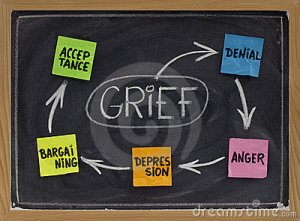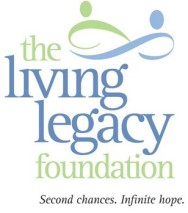Five Things You Should Know about the Five Stages of Grief
By Eleanor Haley
In 1969 psychiatrist Elizabeth Kubler-Ross wrote the book On Death and Dying which introduced the world to the Five Stages of Grief – denial, anger, bargaining, depression, and acceptance. The five stages of grief is the basis for the Kubler-Ross Model, a theory based on Kubler-Ross’s experience and interviews with terminally ill patients.
The Kubler-Ross theory was originally only applied to those facing the reality of their own death. However, practitioners eventually found the constructs of this neat and tidy model fit nicely with the analysis and treatment of grieving individuals. Since its introduction, the theory has become extremely popular and can now be found in mainstream media. It has been applied to everything from divorce to global markets.
Despite the fact that the stages are sometimes refuted in academia, the Kubler-Ross Model seems to be the grief model for the masses. It is intuitive, easy to grasp, and easy to prescribe. Odds are, you have already heard what the five stages of grief are, and have wondered how this theory may apply to you.
Before you apply this grief model to your life, here are five things you should know about the Kubler-Ross Model.
1. It is just a theory:
There are many grief theories; we just happen to hear about the five stages of grief so often people tend to believe it is the gold standard.
They are not absolute truth. Like all theories, it is based on a hypothesis (an educated guess). There is some research to support the theory, but there is also research to contradict the theory as well. In reality, other grief models may fit your experience far better than the Kubler-Ross Model.
It is unrealistic to expect your grief to fall into a neat and easy pattern, formula, or timeline, and don’t think you are abnormal or crazy if your grief doesn’t transition through the stages in an orderly fashion. It just doesn’t work that way.
2. It is not linear:
The five stages are not chronological stops on the way to healing. It’s very easy to hear the stages rattled off and think they will all happen in a particular order, when in reality some of them don’t even need to happen at all. Grief is not a one way tunnel, it’s more like a labyrinth.
The stages are just tools, based on the experiences of many other grievers, to help you understand and identify how you feel. It’s completely normal to realize weeks after a death that you began at a different start point, passed over a step, or even moved backwards.
3. Stages may repeat:
One or more of the five stages may repeat and you won’t necessarily be waving goodbye to ‘anger’ or ‘depression’ in your rearview mirror.
Again, these are tools to help identify and understand how you are feeling so don’t fret if you feel like you are taking two steps back. It’s common in grief to feel like you’re making progress one day only to get knocked on your derrière the next.
4. It is not all encompassing:
Grief is really complex. You will feel a million things after a death of someone close to you. The Kubler-Ross model only covers five different feelings. So don’t feel confused when you find yourself feeling other emotions like guilt or regret because these emotions and many others are all normal.
5. There is no end point:
Analogies like ‘grief journey’ and ‘grief path’ give us the feeling there’s some finite end point to grief. The five stages of grief leave you with a similar feeling – if I can just transition through these stages to ‘acceptance’ I will be at the end of my grief. However, you may never feel a specific end point to your grieving process. This doesn’t mean you won’t ever feel better, it means the theory will reach its end point, while your experience with grief may not.
For more information about grief support, please contact the Family Services Department at the Living Legacy Foundation of Maryland. This team of Mental Health Professionals is available to anyone in need of grief support and can be contacted via phone @ 410-242-7000 (ask to speak to a Family Services Coordinator) or by e-mail at familyservices@thellf.org.





Pingback: How To Go On? | Living Without My Twin Sister